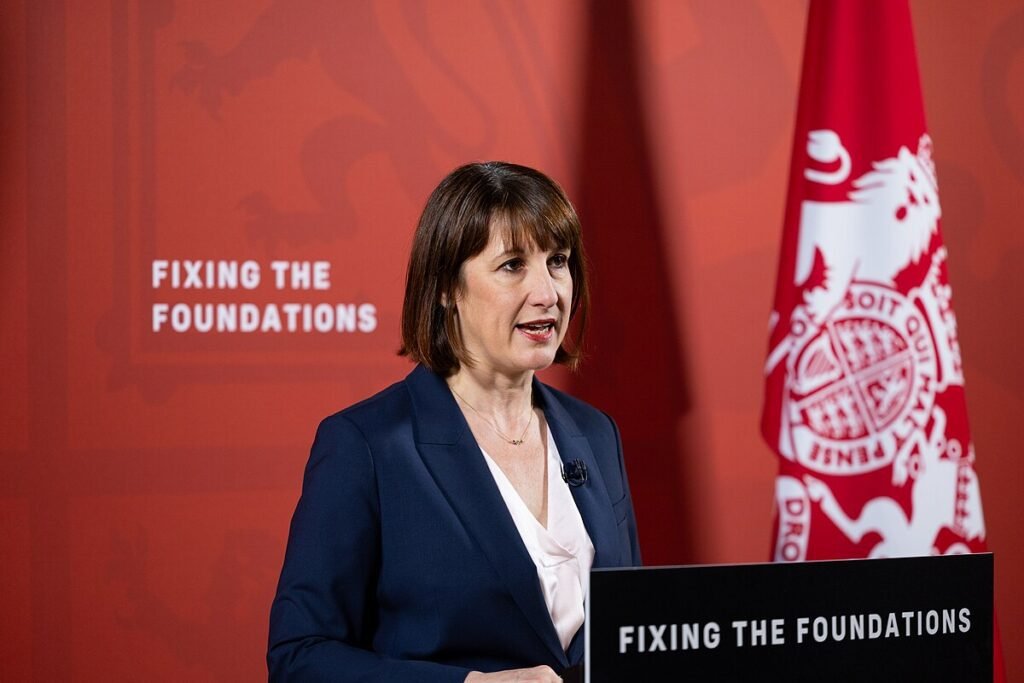Rachel Reeves is ramping up efforts to spur Britain’s economy by meeting with some of the globe’s most powerful investment bankers and asset managers this week. In an effort to bring forth new industry-driven ideas, the chancellor has set meetings with executives from top finance houses, the latest move in her drive to bring in investment and boost the UK’s economic prospects.
Sources have established that Reeves has extended invitations to senior representatives of some of the largest companies including Abrdn, BlackRock, Citi, Goldman Sachs, JP Morgan, Morgan Stanley, and Schroders to a meeting on Wednesday morning. The meeting is set to play a central role in the shaping of the Financial Services Growth and Competitiveness Strategy, a framework intended to enhance the country’s economic resilience and global competitiveness.

A central part of the debate will involve determining how the UK can be made more competitive in the global financial world. As Britain looks to position itself as a desirable destination for foreign investment, the summit will touch on obstacles that could be hampering growth. Economic regulators are also likely to be a priority, as the government considers how to reform in order to boost the business climate.
Fostering institutional and retail investment into the UK economy is another key agenda item. The chancellor and business leaders will discuss ways to direct more capital into British companies, infrastructure, and innovation. The government is keen to collaborate with the private sector to develop policies that encourage long-term investments, ultimately leading to sustained economic growth.
This summit comes after a recent gathering where Britain’s retail banking chief executives offered their views in the midst of fears over potential tax hikes. The banking sector has been keenly observing the economic policies of the government, especially following Reeves’s budget statement last October, which raised criticism and doubt among investors.
Latest figures indicate that many high-net-worth individuals have fled the UK after tax policy reforms were introduced by Reeves. The trend has triggered concern among financial circles, with most of them questioning the long-term effect of the reforms on the stability of the country’s economy. Therefore, deliberations in the discussions this week are likely to involve considerations of how to balance taxation policies while sustaining a framework that fosters the creation of wealth and investment.
One Treasury spokesperson highlighted Reeves’s focus on economic renewal and said: “The Chancellor is committed to doing more and quicker to deliver growth and put money into people’s pockets. She’s hearing the ideas on how to accelerate this work – that’s why she published the Financial Services Growth and Competitiveness Strategy, and that is why she is engaging in partnership with industry to achieve these objectives.”
Reeves has positioned herself as one of collaboration values, acknowledging that economic recovery is sustainable only by actively engaging the private sector. She has had several top-level meetings with finance specialists and investors, showing a proactive role in sourcing advice from those with hands-on experience in the workings of the market.
There are more meetings in the pipeline with business leaders scheduled in the near future, and this indicates that the government continues to be intent on deepening economic relationships as well as mitigating issues flagged by companies. These discussions are likely to frame policies in the future that can promote growth, enhance financial strength, and see Britain continue as a competitive global player.
The chancellor’s method has not been without its trials. The divisive reception of her initial budget put further pressure on her to come up with solid results. Increasing scrutiny of the government’s direction on the economy, Reeves is now required to balance fiscal discipline with policies of growth.
In spite of these challenges, her eagerness to consult with financial luminaries is evidence of a pragmatic governance style. By soliciting the views of major industry players, Reeves aims to sharpen plans that will make Britain an attractive place to invest. The future sessions will be followed keenly by market observers, policymakers, and business executives alike, who are waiting to learn how the government will realize its economic vision.
As Reeves continues her push for economic revitalization, the stakes remain high. The outcomes of these discussions could play a decisive role in shaping the UK’s financial policies, influencing investor confidence, and determining the country’s economic trajectory in the years to come.
With more action in the pipeline, the financial community will be seeking guarantees that their issues are being met. Whether these will pay off in terms of real economic growth is yet to be determined, but one thing is certain—Reeves is not leaving any stone unturned in her quest to revive Britain’s economy.








